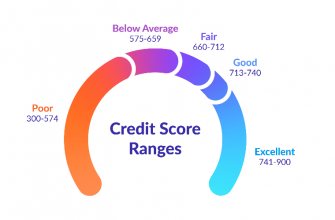- How to Overcome Financial Dependence: A Comprehensive Guide
- Understanding Financial Dependence
- Common Causes of Financial Dependence
- Steps to Overcome Financial Dependence
- 1. Assess Your Current Situation
- 2. Build Financial Literacy
- 3. Create a Financial Plan
- 4. Generate Multiple Income Streams
- 5. Reduce Expenses
- 6. Build an Emergency Fund
- 7. Address Emotional Barriers
- Overcoming Specific Scenarios of Financial Dependence
- Dependence on a Partner
- Dependence on Parents
- Dependence on a Single Job
- Tools and Resources for Financial Independence
- Budgeting Tools
- Financial Planning Resources
- Support Networks
- The Benefits of Financial Independence
- Final Thoughts
How to Overcome Financial Dependence: A Comprehensive Guide
Financial dependence can feel like a heavy chain, restricting your freedom and limiting your choices. Whether you’re relying on a partner, family member, or even a job that no longer aligns with your values, breaking free from financial dependence is both a practical and emotional journey. This guide will help you understand the root causes of financial dependence and provide actionable strategies to overcome it.
Understanding Financial Dependence
Financial dependence occurs when you rely on someone else to meet your financial needs. This could mean depending on a spouse for household expenses, relying on parents for support, or being tied to a single source of income without a safety net. While it’s common at certain stages of life, prolonged financial dependence can lead to feelings of powerlessness and a lack of autonomy.
Common Causes of Financial Dependence
- Lack of Financial Literacy: Many people lack the knowledge needed to manage money effectively, making them reliant on others.
- Cultural Expectations: In some cultures, it’s common to rely on family or a partner for financial support.
- Fear of Failure: The fear of making financial mistakes can discourage people from taking control of their finances.
- Emotional Factors: Low self-esteem or fear of conflict may lead someone to avoid addressing financial independence.
Steps to Overcome Financial Dependence
1. Assess Your Current Situation
Understanding where you stand financially is the first step to independence. This includes:
- Creating a Budget: Track your income and expenses to understand your financial flow.
- Listing Debts: Know who you owe and how much.
- Identifying Assets: Determine your financial resources, including savings, investments, and skills.
2. Build Financial Literacy
Knowledge is power. To take control of your finances, educate yourself:
- Read Books and Blogs: Start with books like Rich Dad Poor Dad by Robert Kiyosaki or The Total Money Makeover by Dave Ramsey.
- Take Online Courses: Platforms like Coursera and Udemy offer courses on personal finance.
- Follow Experts: Subscribe to financial blogs, YouTube channels, and podcasts.
3. Create a Financial Plan
Having a clear plan can provide direction and motivation. Your plan should include:
- Short-term Goals: Saving for an emergency fund, paying off high-interest debt.
- Long-term Goals: Buying a home, retirement planning, or starting a business.
- Actionable Steps: Set specific, measurable, achievable, relevant, and time-bound (SMART) goals.
4. Generate Multiple Income Streams
Relying on a single income source can be risky. Diversify your income by:
- Exploring Side Hustles: Freelancing, selling crafts, or tutoring.
- Investing in Passive Income: Stocks, real estate, or dividend-paying assets.
- Upskilling: Learning new skills to increase your earning potential.
5. Reduce Expenses
Cutting unnecessary expenses can free up money to invest in your future. Start by:
- Eliminating Subscriptions: Cancel services you don’t use.
- Adopting Minimalism: Focus on needs over wants.
- Negotiating Bills: Ask for discounts on utilities, insurance, and other recurring expenses.
6. Build an Emergency Fund
An emergency fund acts as a financial safety net. Aim to save at least 3-6 months’ worth of living expenses. Start small if needed, and gradually increase your savings.
7. Address Emotional Barriers
Financial dependence often has emotional roots. Overcoming these requires self-reflection and growth:
- Develop Confidence: Celebrate small financial wins to build self-esteem.
- Seek Therapy: A professional can help address fears or traumas related to money.
- Communicate: Open discussions with those you’re financially dependent on can set boundaries and clarify expectations.
Overcoming Specific Scenarios of Financial Dependence
Dependence on a Partner
If you rely on a partner for financial support:
- Establish Joint Goals: Work together to create a financial plan that includes independence.
- Contribute Non-Financially: Manage household tasks or other responsibilities to add value.
- Start Earning: Begin with part-time work or freelancing to build confidence and income.
Dependence on Parents
Breaking free from parental support:
- Create a Timeline: Set a clear deadline to achieve financial independence.
- Take Responsibility: Pay for your own bills and manage your own expenses.
- Learn Independence Skills: Cooking, budgeting, and time management are essential.
Dependence on a Single Job
Avoiding job dependency:
- Build a Side Business: Use your skills to create additional income streams.
- Network: Connect with professionals in your field to explore new opportunities.
- Save Aggressively: Build a financial cushion to reduce reliance on your job.
Tools and Resources for Financial Independence
Budgeting Tools
- Mint: A free app for tracking expenses and setting goals.
- YNAB (You Need A Budget): Helps you plan every dollar effectively.
- Personal Capital: Combines budgeting with investment tracking.
Financial Planning Resources
- Financial Advisors: Consult a professional for tailored advice.
- Online Calculators: Use tools to estimate savings, investments, and retirement needs.
Support Networks
- Online Communities: Join forums like Reddit’s r/personalfinance.
- Local Workshops: Attend community events on financial literacy.
- Accountability Partners: Share goals with a trusted friend or mentor.
The Benefits of Financial Independence
Achieving financial independence offers numerous advantages:
- Freedom: Make life choices without financial constraints.
- Confidence: Feel empowered to handle challenges.
- Security: Build a safety net for unforeseen circumstances.
- Fulfillment: Pursue passions and goals without fear.
Final Thoughts
Overcoming financial dependence is a journey that requires patience, effort, and determination. By taking small, consistent steps, you can achieve financial freedom and unlock a world of opportunities. Remember, every step forward is progress—celebrate your achievements and stay focused on your goals.









